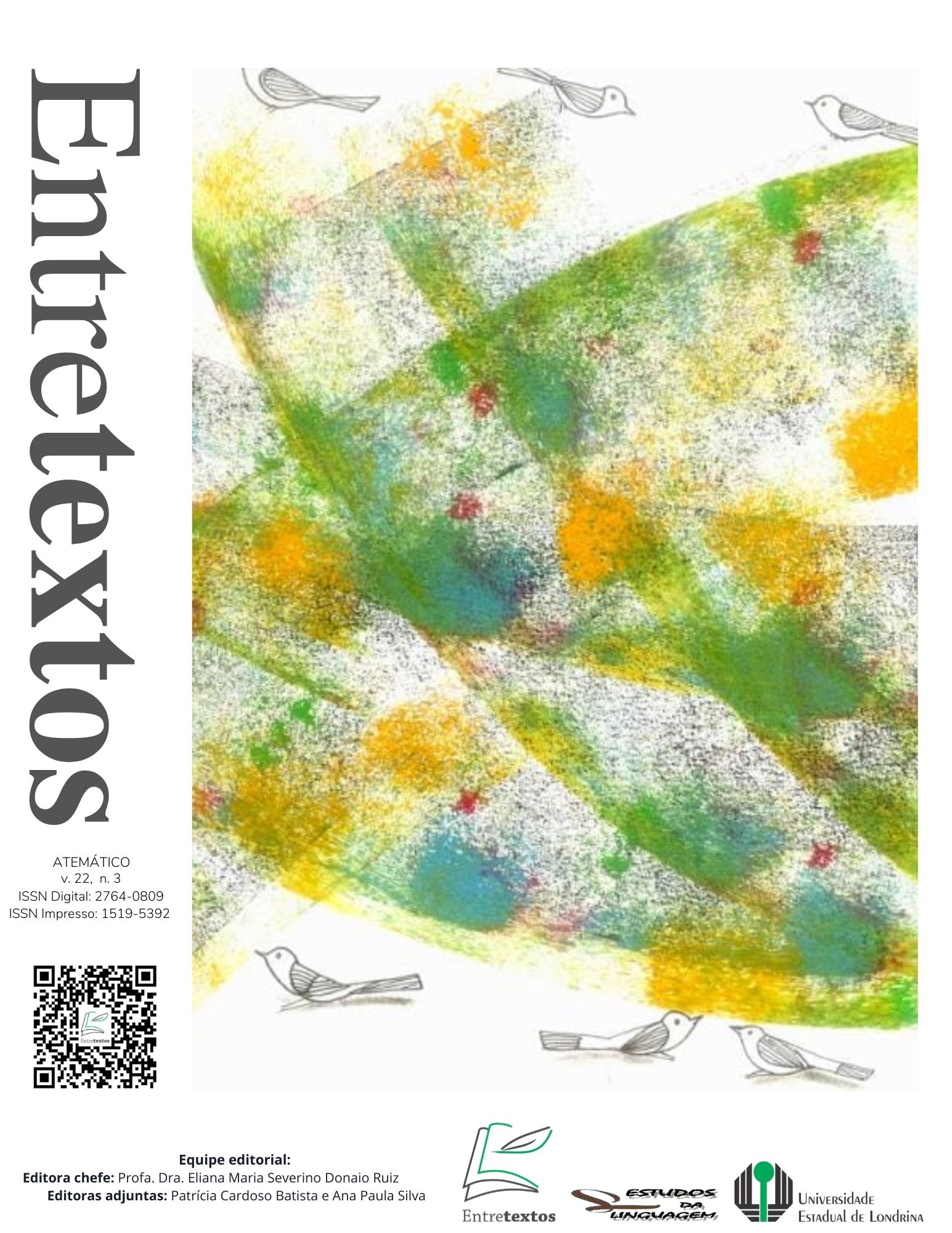Educational sociolinguistics: towards a pedagogical model for teaching Englishes instead of English
DOI:
https://doi.org/10.5433/1519-5392.2022v22n3p199-215Palavras-chave:
Educational Sociolinguistics, TEFL., ELFResumo
The current global status of the English language as a lingua franca has been running several discussions in the realm of Teaching English as a Foreign Language (TEFL) (ANJOS, 2019; 2017; SIQUEIRA, 2020; DUBOC; SIQUEIRA, 2020). Accordingly, many research works, mostly those of English as a Lingua Franca (ELF) (JENKINS, 2009; SCHMITZ, 2012), corroborate the need for new orientations for TEFL based on native-speaker standards. In this paper, we argue that the insertion of Educational Sociolinguistics into the TEFL reveals to be an advantageous pedagogical convergence: As Educational Sociolinguistics sets a pedagogical framework for language teaching under a variationist perspective (VERHOEVEN, 1997; CREESE, 2010; COAN; FREITAG, 2010), as such theoretical perspective is capable of triggering shifts in the TEFL once it leads to addressing relevant issues related to language diversity, which contributes to inhibiting linguistic discrimination upon non-standard varieties, such as those referred to under the ELF label. By analyzing core concepts of ELF and Educational Sociolinguistics, this theoretical research calls EFL teachers to teach "Englishes" - not only (standard American or British) English.
Downloads
Referências
ANJOS, F. A. Appropriate pedagogy to teach English: Contemporary tendency focusing on non-native. ELT Forum-Journal of English Language Teaching, Semarang, v. 8, p. 14-24-24, 2019. Disponível em: https://journal.unnes.ac.id/sju/index.php/elt/article/view/27778. Acesso em: 6 abr. 2021.
ANJOS, F. A. Princípios Fundamentais para o Ensino e a Aprendizagem do inglês como língua Global. Revista de Letras, Curitiba, v. 19, p. 114-132, 2017. Disponível em: https://periodicos.utfpr.edu.br/rl/article/view/4710. Acesso em: 12 jun. 2021.
BORTONI-RICARDO, S. M. Educação em língua materna: a sociolinguística em sala de aula. São Paulo: Parábola, 2004.
COAN, M.; FREITAG, R. Sociolinguística Variacionista: pressupostos teórico-metodológicos e propostas de ensino. Domínios de Lingu@gem, Uberlândia, v. 4, p. 173-194, 2010. Disponível em: http://www.seer.ufu.br/index.php/dominiosdelinguagem/article/view/11618. Acesso em: 19 dez. 2020
COULMAS, F. (Org.).The handbook of Sociolinguistics. Oxford: Blackwell, 1997.
CREESE, A. Methodology and Pedagogy in Educational Sociolinguistics: Researching and Teaching in Linguistically Diverse Schools. In: HULT, F. M (org.). Directions and Prospects for Educational Linguistics. Springer: London, New York, 2010, p. 33-48.
DUBOC, A. P. M.; SIQUEIRA, D. S. P. ELF feito no Brasil: expanding theoretical notions, reframing educational policies. Status Quaestionis: language, text, culture, Rome, v. 19, p. 297-331, 2020. Disponível em: https://rosa.uniroma1.it/rosa03/status_quaestionis/article/view/17135. Acesso em: 12 jun. 2021.
ECKERT, P. Linguistic variation as social practice. Oxford: Blackwell, 2000.
FARREL, T; MARTIN, S. To teach standard English or world Englishes? A balanced approach to instruction. English teaching forum, USA, n. 2, p. 2-7, 2009. Disponível em: https://eric.ed.gov/?id=EJ923448. Acesso em: 6 abr. 2021.
JENKINS, J. English as a lingua franca: interpretations and attitudes. World Englishes, v. 28.2, p. 200-207, 2009.
LABOV, W. Sociolinguistic Patterns. Philadelphia: University of Pennsylvania Press, 1972.
LABOV, W. Principles of linguistic change: internal factors. Oxford: Blackwell, 1994.
QUIJANO, A. Colonialidade do poder, eurocentrismo e América Latina. In: LANDER, E. (Org.). A colonialidade do saber: eurocentrismo e ciencias sociais. Perspectivas latino-americanas. Colección Sur Sur, CLACSO, Ciudad Autónoma de Buenos Aires, Argentina, 2005, p.227-278.
SCHMITZ, J. R."To ELF or not to ELF": English as a Lingua Franca: That's the question for Applied Linguistics in a Globalized World. Revista Brasileira de Linguística Aplicada, Belo Horizonte, v. 12, p. 249-284, 2012.
SIQUEIRA, S. ELT materials for Basic Education in Brazil: is there room for an ELF-aware practice? Estudos Linguísticos e Literários, Salvador, v. 65, p. 118-146, 2020. Disponível em: https://periodicos.ufba.br/index.php/estudos/article/view/36472. Acesso em: 17 fev. 2021.
VERHOEVEN, L. Sociolinguistics and Education. In: COULMAS, F. (Org.).The handbook of Sociolinguistics. Oxford: Blackwell, 1997, p. 389-404.
ZILLES, A. M. S.; FARACO, C. A. Pedagogia da variação linguística: língua, diversidade e ensino. São Paulo: Parábola, 2015.
Downloads
Publicado
Como Citar
Edição
Seção
Licença
Copyright (c) 2023 Entretextos

Este trabalho está licenciado sob uma licença Creative Commons Attribution 4.0 International License.
Entretextos adota a Licença Creative Commons Attribution 4.0 International, portanto, os direitos autorais relativos aos artigos publicados são do/s autor/es.
Sob essa licença é possível: Compartilhar - copiar e redistribuir o material em qualquer suporte ou formato. Adaptar - remixar, transformar, e criar a partir do material, atribuindo o devido crédito e prover um link para a licença e indicar se mudanças foram feitas.
























